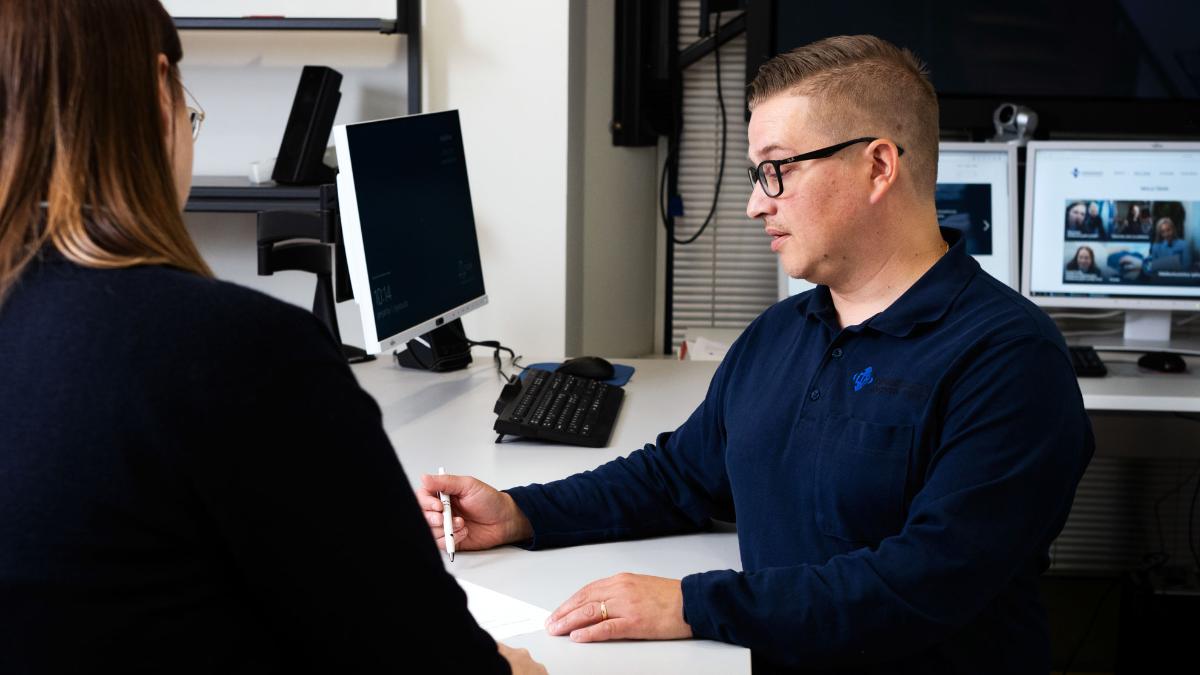Non-urgent prehospital care assignments involve multi-professional cooperation

Congestion in health care and social services has recently been in the news frequently, and the issue is also affecting emergency and prehospital care. Non-urgent tasks are also increasingly assigned to prehospital emergency care services, and various multi-professional approaches have been developed around Finland to handle these assignments.
When receiving an emergency call, the ERC operator will immediately begin to form a risk assessment and an understanding of what has happened. The risk assessment is based on instructions prepared by the authorities involved in the ERC operations. They describe what needs to be taken into account and when it is necessary to alert the authorities.
If the emergency response centre defines the task as a non-urgent class D assignment for the emergency mecial services, depending on the dispatch instructions of the region, it can be forwarded to a nurse who will call the patient and assess the need for treatment based on the criteria used by health care and social services. Patients who are not referred to an emergency care unit, in other words an ambulance, can be referred to be transported to the hospital’s emergency department by other means or given advice and follow-up care instructions by phone, or some other health care and social services operator can be dispatched to the patient. In many regions, emergency care services work in close cooperation with home hospital care services, for example.
An assessment of the need for treatment by health care services is the most effective way to refer the patient to appropriate care.
− The ability to handle non-urgent assignments by health care over the phone also helps ensure that emergency care resources are effectively allocated to respond primarily to medical emergencies and serious injuries, Sector Manager Aki Ekstrand from the ERC Agency says.
For citizens, this means that after calling the emergency number, the caller may receive a call from an unknown number. You may receive a call whenever you interact with the emergency response centre, which is why it is important to keep the phone available after calling the emergency number and to answer any calls.
− The ERC operator will let the caller know if the assignment is being forwarded to a telephone assessment of the need for treatment, for example. That’s why it is important to listen and follow the instructions given by the operator. If the situation changes before help arrives or you are contacted by the authorities, it is very important that you call the emergency number 112 again, Ekstrand adds.
See also
Distress may turn to joy in a call involving childbirth
ERC operators provide instructions on what to do at the scene of an accident
Emergencies and problem situations abroad – This is what you should do
Wellbeing is built together
Competent, committed and content staff are the Emergency Response Centre Agency's most important asset and strategic priority. The Agency’s new wellbeing at work programme places greater emphasis on developing competence in work capacity management and career management, among other things.
Distress may turn to joy in a call involving childbirth
The Emergency Response centre sends assistance to more than 2,240 assignments involving childbirth each year. For the ERC operator, the experience is unique, as the sounds of new life can be heard at the other end of the line.
ERC operators provide instructions on what to do at the scene of an accident
According to a survey by the Finnish Road Safety Council (Liikenneturva), one in four Finns do not feel that they know what to do at the scene of an accident. The instructions provided by an ERC operator can save lives in an accident situation.
Emergencies and problem situations abroad – This is what you should do
Only approximately half of Finns know that the emergency number 112 works in all EU countries. When you call 112 in an EU member state, the call is always routed to a local emergency response centre.
Social emergencies require time
The Emergency Response Centre Agency also forwards tasks to social and crisis emergency services. In 2024, the number of these tasks increased by 4 percentage points compared to the previous year, overtaking the number of tasks forwarded to rescue services.



